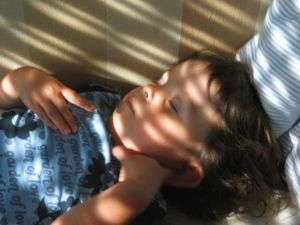Lighting Science held a presentation entitled Light is Medicine at SLEEP 2014, the 28th Annual Meeting of the Associated Professional Sleep Societies LLC.
A central theme of the event, sponsored by one of the largest patent holders of biologically-corrected lights, focused on the advances in research about the useful role of LED lights in enhancing sleep, performance and well-being.
New technology and scientific discoveries have allowed researchers to gain a more complete understanding of how a newly discovered light photoreceptor in our eye impacts our circadian cycles. By filtering and tailoring blue-light wavelength exposure throughout the day, light can be biologically-corrected to enhance sleepiness before bedtime to prepare the brain for sleep, improve quality of sleep and improve overall well-being.
Lighting Science, in co=ordination with NASA, is the first corrected LED lights that support our circadian rhythms and sleep cycles.
Director of Lighting Research at Lighting Science, Robert Soler, said:
To be a participant at one of the leading global conferences on sleep medicine and research is an exciting milestone for all of us at Lighting Science, and we are honoured to be considered at the forefront of medical technology and innovation. Lighting Science released it’s patented biologically-corrected light bulbs last year, and now we are the first light bulb designer and manufacturer to be a sponsor of this prestigious annual SLEEP conference. Today’s events confirm our longstanding belief that light is a powerful force in nature, even when compared to pharmaceuticals and that we are just beginning to learn how to harness the profound impact light has on our alertness and sleep patterns and overall Arcadian rhythms.
Associate Professor of Medicine in the Division of Sleep Medicine at Harvard Medical School, Dr Steven Lockley, added:
The studies that we are conducting on how light affects human physiology, including our work with NASA, are changing the way we think about using light and how we approach solutions to help us sleep.
